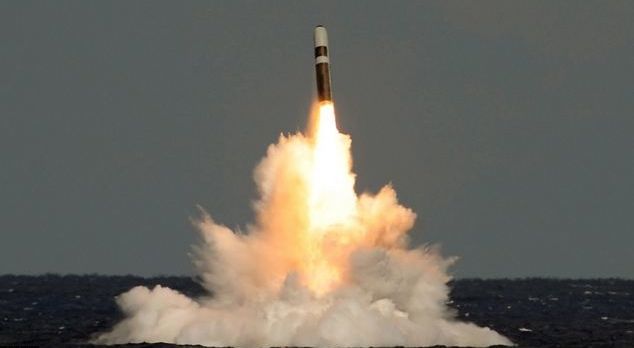ATK, Orbital To Merge; First Course Of New Last Supper?
Posted on

WASHINGTON: In many respects, the merger announced this morning between ATK and Orbital Sciencesappears just a sensible move between two space and defense companies facing a declining demand for rockets and rocket engines.
The Space Shuttle flies no more, leaving ATK without the considerable revenue stream from its reusable solid rocket motor. The United Launch Alliance dominates the business of heavy launch in the United States and that only amounts to seven to eight launches each year, although each launch is worth north of $200 million. Orbital has struggled to boost its satellite and launch business revenue.
“That all contributes to an eroding base of business, so now is the time to combine operations,” Loren Thompson, defense consultant and acquisition expert told me this morning. (Thompson does not do business with either company.)
In a call with reporters this morning, Orbital Chief Executive David Thompson (who will lead the new entity) said the combined company would probably compete for a new US strategic missile, something that the separate companies would find difficult.
But there’s a larger issue raised by this merger: is this the beginning of serious defense industry consolidation as the drawdown accelerates, or is this a one-off event driven by unique business needs. Put another way, is this the first course of a new Last Supper, the one made famous by Norm Augustine, former CEO of Lockheed Martin.
I got very different assessments from Thompson and from Bill Greenwalt, who penned our series of op-eds on acquisition reform.
“I think it is the beginning of a trend that will grow larger as the budgets get tighter,” Greenwalt writes in an email. “Still, each transaction will be subject to more stringent governmental M&A (mergers and acquisition) review as there will be more mergers to monopolies or, as in this case, increased vertical integration.” Frank Kendall, head of the Pentagon acquisition, and former Deputy Defense Secretary Ash Carter have downplayed the likelihood or need for mergers of any of the companies that dominate the commanding heights of the aerospace and defense sector. The second and third tiers of the industry are likely, they’ve said, to see increasing M&A activity.
Thompson offered a more technical read on future mergers or acquisitions of the large defense companies: “It will be hard to sustain a consolidation trend in the defense sector while share prices remain high. For instance, ATK was selling in the low 40s two years ago, and today it opened at 148. If share prices moderate, though, sector consolidation is likely to gain speed.”
An industry source familiar with the business of both companies offered this read: “My guess is this is more unique to Orbital’s situation.”
Technically, ATK is splitting into two companies, one that deals with sporting goods and the other that produces ammunition and rocket engines. “As standalone companies, they will be more focused businesses, with clear and distinct strategic visions and objectives, additional operational flexibility and the financial strength to make the most of their unique opportunities in their respective industries,” ATK said in a statement. The aerospace and defense groups of ATK will merge with Orbital.
“Orbital ATK will serve the following core markets: aerospace through launch vehicles, spacecraft and satellites, military and commercial structures, and special mission aircraft; and defense through munitions, weapons systems, defense electronics systems, targets, interceptor vehicles and missile products,” the statement notes.
The merged company will have revenues of $4.5 billion and a backlog of $11.0 billion.
Subscribe to our newsletter
Promotions, new products and sales. Directly to your inbox.
